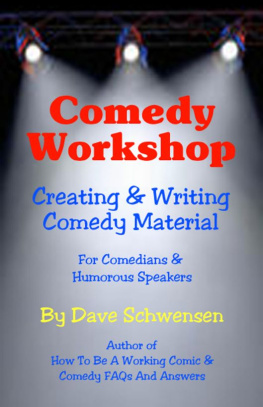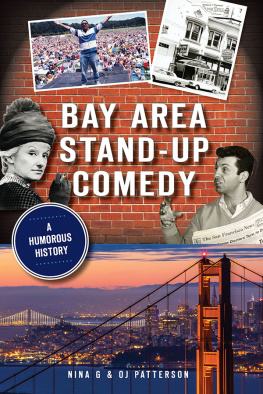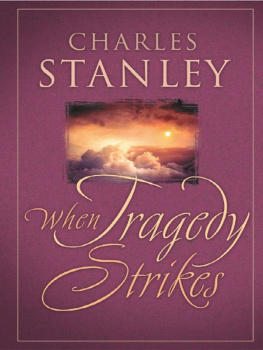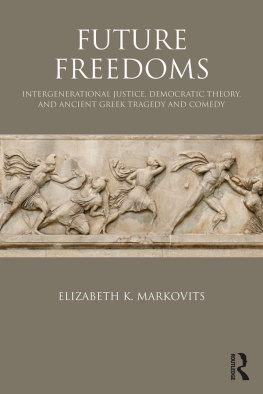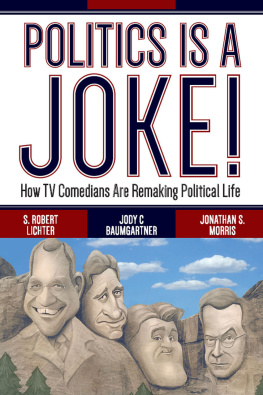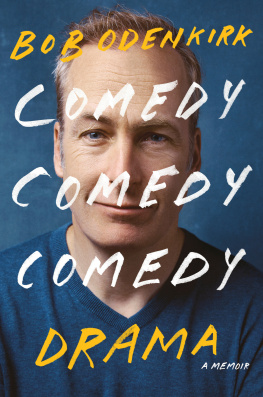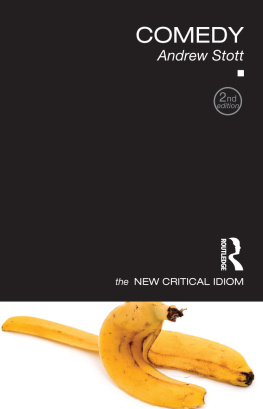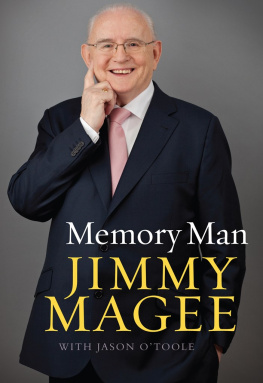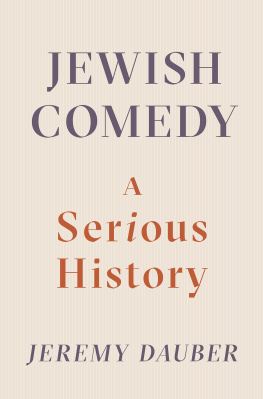TRAGEDY PLUS TIME
National Trauma and Television Comedy
PHILIP SCEPANSKI

UNIVERSITY OF TEXAS PRESS
Austin
Copyright 2021 by the University of Texas Press
All rights reserved
First edition, 2021
Requests for permission to reproduce material from this work should be sent to:
Permissions
University of Texas Press
P.O. Box 7819
Austin, TX 78713-7819
utpress.utexas.edu/rp-form
Library of Congress Cataloging-in-Publication Data
Names: Scepanski, Philip, author.
Title: Tragedy plus time : national trauma and television comedy / Philip Scepanski.
Other titles: Tragedy + time : national trauma and television comedy
Description: First edition. | Austin : University of Texas Press, 2021. | Includes bibliographical references and index.
Identifiers: LCCN 2020032962
ISBN 978-1-4773-2254-3 (hardback)
ISBN 978-1-4773-2255-0 (library ebook)
ISBN 978-1-4773-2256-7 (non-library ebook)
Subjects: LCSH: Television comediesSocial aspectsUnited States. | Psychic traumaHumorSocial aspectsUnited States. | DisastersHumorSocial aspectsUnited States. | American wit and humorSocial aspects. | AmericansPsychology.
Classification: LCC PN1992.8.C66 S3 2021 | DDC 791.45/6170973dc23
LC record available at https://lccn.loc.gov/2020032962
doi:10.7560/322543
To Mom and Dad
CONTENTS
ACKNOWLEDGMENTS
This book is the result of many years, relationships, influences, and favors. Since it grew out of my dissertation, I must thank Jeffrey Sconce, my advisor, as well as committee members Lynn Spigel and Robert Hariman, without whom this project could never have begun nor developed into anything resembling what it is today. I must also thank the professors from my undergraduate and graduate studies who taught me so much, all of whom are represented in this work. At Northwestern, Scott Curtis, Penelope Deutscher, Hamid Naficy, Jacqueline Stewart, Domietta Torlasco, Amy Villarejo, and Mimi White were especially influential, while at UCLA, John Caldwell, Jennifer Holt, and Stephen Mamber proved particularly important to my development as a scholar.
In my time since graduate school, colleagues and administrators at Marist and Vassar Colleges have earned my thanks for support and friendship. At Marist, colleagues Daniel Amernick, Jeff Bass, Sally Dwyer-McNulty, Jenn Eden, Sue Lawrence, Kevin Lerner, Robyn Rosen, and Adam Zaretsky provided enormous, if varied types of, support, as did administrators Lyn Lepre and Thomas Wermuth. Marist library staff members Becky Albitz, Greg Carr, and Zachary Grisham, and especially Elizabeth Clarke, were also incredibly helpful. At Vassar, I am particularly grateful for the support of Dara Greenwood, Sophia Harvey, Sarah Kozloff, Mia Mask, and Christopher White.
I owe enormous thanks to my peer reviewers on this project, Matt Sienkiewicz and Rebecca Krefting, whose advice and support improved the books quality immensely and ushered me past imposter syndrome. I need to also thank the entire University of Texas Press, its faculty board, editors, and additional team members for seeing this project through. In particular, thanks goes to Lynne Ferguson, Sarah McGavick, and Sarah Hudgens. Special thanks also go to my editor Jim Burr, who has been a supporter of this project since long before I even sent in the proposal.
I have been lucky enough to be friends and colleagues with many others through graduate school and my early career. Some deserve particular thanks for reading through portions of this and offering notes, including Peter Kunze, Nick Marx, Luke Stadel, and Beth Corzo-Duchardt. Other scholars who have influenced this project through their advice and expertise include Ashley Nicole Black, Nina Bradley, Jared Champion, Jonathan Cohn, Alla Gadassik, Amelie Hastie, Alex Kupfer, Jenn Porst, David Sagehorn, Ethan Thompson, and Laura Weinstein. Others who might not have overlapping expertise but who have been good friends through my academic pursuits include Susan Ericsson, Tara Flanagan, Dawn Fratini, Harrison Gish, and Jason Roberts. A special thanks also goes to Adam VanWagner for his legal expertise.
Finally, I need to thank all of my family memberseach of you has made this possible and provided support for my education and eventual career. William, Linda, and Rachel Scepanski got me to the point where I could begin this project and continue to provide me with all manner of support. Most importantly, I need to acknowledge the love, support, and sacrifice of Martha Warner-Scepanski and Henry Scepanski, the two most important people in my life.
Introduction
BROADCAST NATIONALISM, NATIONAL TRAUMA, AND TELEVISION COMEDY
On September 29, 2001, the same month as the 9/11 terror attacks, cable television channel Comedy Central and the New York Friars Club hosted a roast of Hugh Hefner. Introducing the event, Freddy Roman justified its questionable frivolity by invoking the orders of newly sanctified leaders. Its time we get back to normal, like Mayor Giuliani and President Bush have asked.... And for the Friars, this is normal. Telling dirty jokes, making fun of people. Thats what we do, and were proud to do it for you.... So you can get some laughter back in your life and into your hearts. Jeff Ross proved an early exception to this rule, however, as he mocked Rob Schneiders flagging set: Rob, hasnt there been enough bombing in this city? Other comics followed Freddie Romans lead, offering more earnest reactions to the terror attacks. For instance, Dick Gregory used the occasion to first praise Hefner for his early integration of the Playboy Club before appealing to a sense of national community, delivering an inspirational speech:
I hear people talking about what a great nation this is today like something just happened a couple of weeks ago and we just got great. Fear and God do not occupy the same space, understand that.... If you stop to think about what makes America great... its the firemen that left home this morning and intended to come back tonight and ran into a building when everybody else was running out.
At the same time, one could hardly call Drew Careys verbal assaults on Osama bin Laden insincere, even if he meant them to be funny. After The crowd responded with gasps, boos, and shouts of too soon. Eventually, and famously, Gottfried won the crowd back with his telling of The Aristocrats, a famously dirty shaggy dog joke. However, the 9/11 joke and everything that followed in Gottfrieds appearance were cut from Comedy Centrals airing of the roast.
September 11 was certainly the largest mediated American national trauma at least since the 1963 Kennedy assassination. Nevertheless, it proves instructive not only for its familiarity as opposed to other, less totalizing traumas, but also for the continuities it has with other catastrophes before and since. The events of that nights roast serve as a microcosm of the role of humor in society and on television and highlight key tensions. Does comedy function to unite groups, as Roman and Gregory indicated? Does that unity necessarily rely on othering those perceived as enemies, as Careys set suggested? In that case, is comedy more unifying or divisive in the balance? African American Dick Gregorys speech draws attention to the way that members of disenfranchised groups negotiate their relationship to the nation. In yet another way, his performance calls attention to the way comedy can reengage historical memories of events like the black civil rights movement of the 1950s and 60s. Gottfrieds joking also emphasizes the way humor serves as cover for breaking taboos and testing the limits of expression around sensitive issues. The censorship of his and Careys routine for television underscores how, even in the relatively freely expressive genre of comedy, speech is limited. More generally, these examples point to the function of comedy in televisions larger role of transmitting and remembering incredibly serious and powerful moments in American culture.


